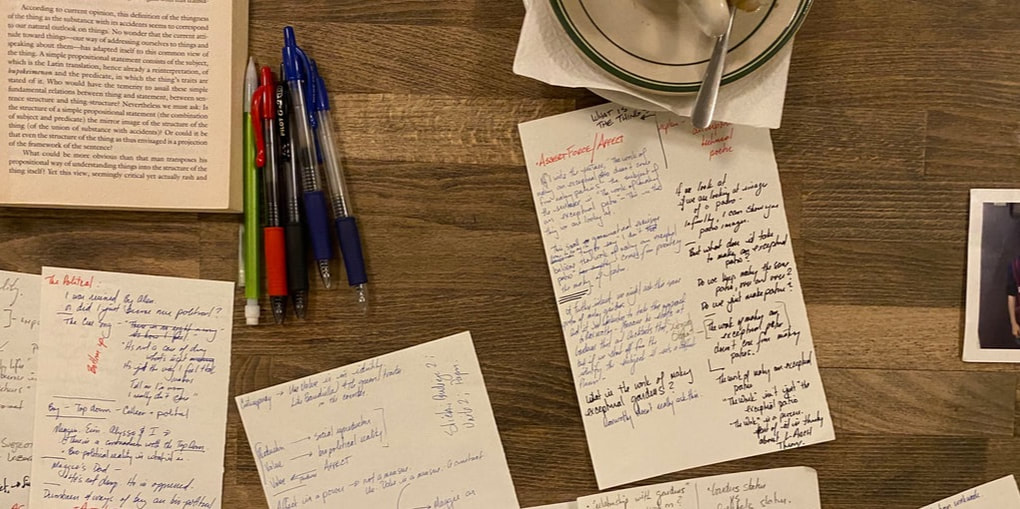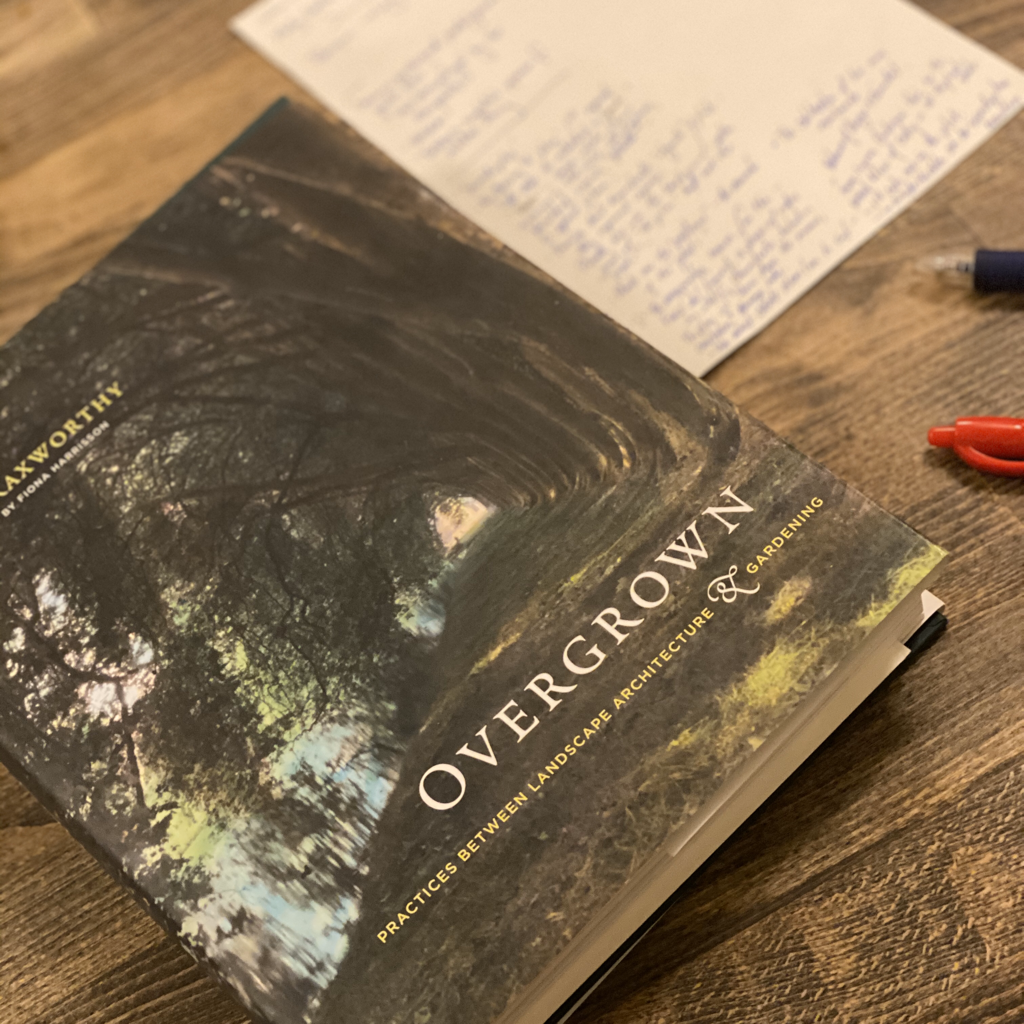|
From Raxworthy's text, I imaging two poles on a spectrum of practices that make gardens. On the one end we have "architectural practice." This work is through the imagination, thinking forward the growth and aging of materials, prediction, and making representations and drawings The other end of the spectrum is 'gardening practice." At the furthest end, gardening is improvisational. The gardener interacts with growth and materials in real time and takes action directly to form the space of a garden. The gardener is the garden's agent in a way an architect can't be. Architectural practice works through simulations. This model or thinking apparatus, what Raxworthy refers to as "logical support" will come into play in future writings. It is a beginning. I say, "From Raxworthy's text" as I don't think he presents "a spectrum of practice." I believe he presents "how architects do it" verses "how gardeners do it." Oppositions the text seems to want to resolve together as a dialectic, resolve into one practice. Architects need to become more like gardeners and gardeners need to become more like architects, he says late in the book. This is a slightly different thinking apparatus or method. My approach is inverted. I see "Those who practice making gardens." Then we ask how they go about getting there. Everyone makes gardens. There is no heirarchy. It makes us consider garden making practices, eliminates problems with top down thinking, and a sense that one identity position or another may be advocated for - well, it keeps the identity position as "those who make gardens." Without sharing an identity one might think practices of one or the other would be being appropriated. But. I talk about "thinking apparatus" Because on the one hand Raxworthy gives me a way to think about "conflicts" in the worlds that I make gardens in. Certain kinds of gardens. However. Raxworthy, I believe, is imagining a different kind of "garden" "Gardens" that in part cities are modeled around. "Landscape as infrastructure" may be a key phrase. In this sense "process" stops being a word we use to talk about how we go about making gardens. "Process" looks to ways that the science of landscape design has come to objectify "nature" and "ecologies" as "processes." I think Raxworthy is looking at a landscape architecture That may be moving away from living space A design where we know, are attached to, enjoy, touch, collect, and curate space with plants Living space humans as animals and plants share Towards an architecture and design that only reproduces computer simulations of "natural and ecological processes." Such simulations separate us Because the landscape no longer moves in human time But at the speed of computer processing. This may seem apocalyptic. We can contextualize it as that. It is one way of many ways to think about it. But the garden, the home, the city, and other bodies are what we relate to, and The relationship between us is our measure Our unit that calibrates us to how we know the world. The form of a garden at any given moment is provisional, because the garden is always growing. The gardener as observer is always linked to the analysis of a garden because s/he is also maturing while the garden is growing, and s/he and the garden are both at particular, ephemeral stages. (138) |
AuthorFrom Matthew Dore, the "I" voice of Buffalo Horticulture and "The Buff Hort Project." Archives
April 2022
Categories |
Telephone(716)628.3555
|
|


 RSS Feed
RSS Feed